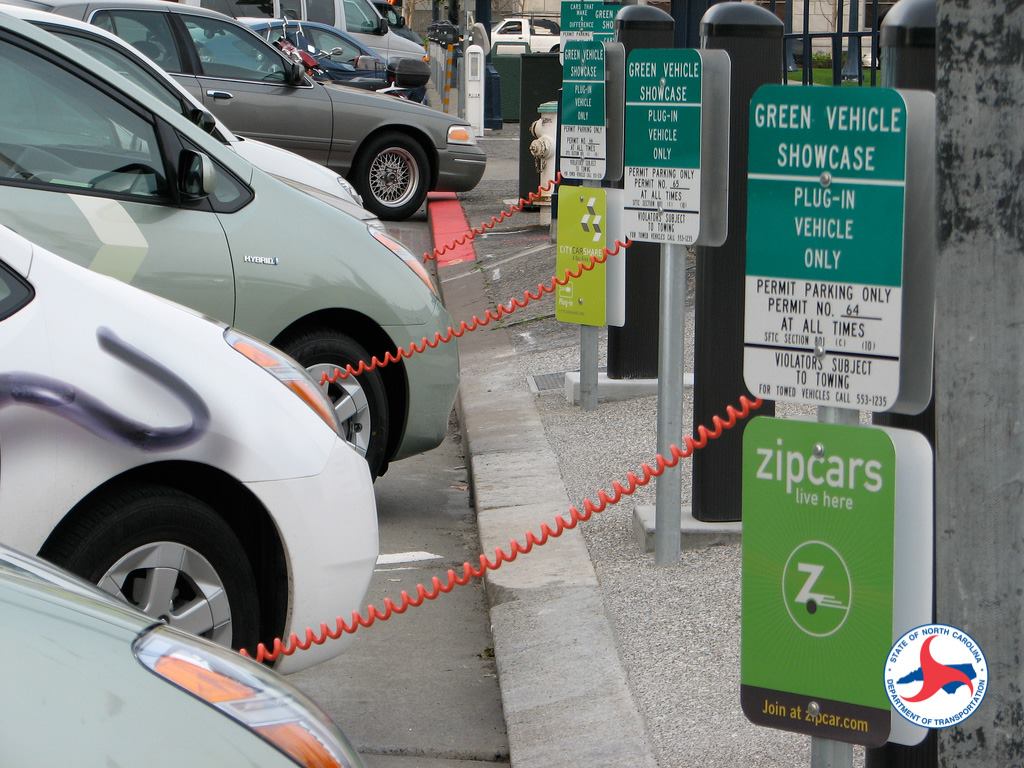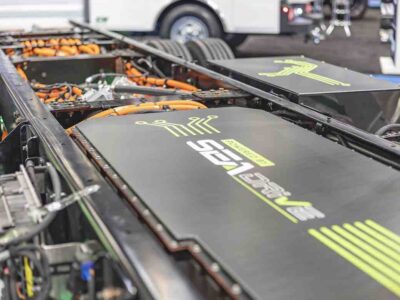North Carolina passed a big milestone in 2023 in its quest to put more electric vehicles (EVs) on the road. Over the summer, the North Carolina Department of Transportation (NCDOT) announced that more than 70,000 Zero Emission Vehicles (ZEV) have been registered in the state. That continued a recent run of rapid ZEV growth.
Spectrum News reported that while the 70,000 figure is still “well below” North Carolina Gov. Roy Cooper’s goal of getting 1.25 million EVs on the road by 2030, there has been recent momentum. The number of registered ZEVs in the state rose by 55% between August 2022 and August 2023 alone.
North Carolina is also nearing its goal of having at least 80,000 registered ZEVs by 2025. That target was established by Cooper in 2018 when he signed Executive Order No. 80 and directed the NCDOT to develop a strategic plan to guide ZEV adoption in the state.
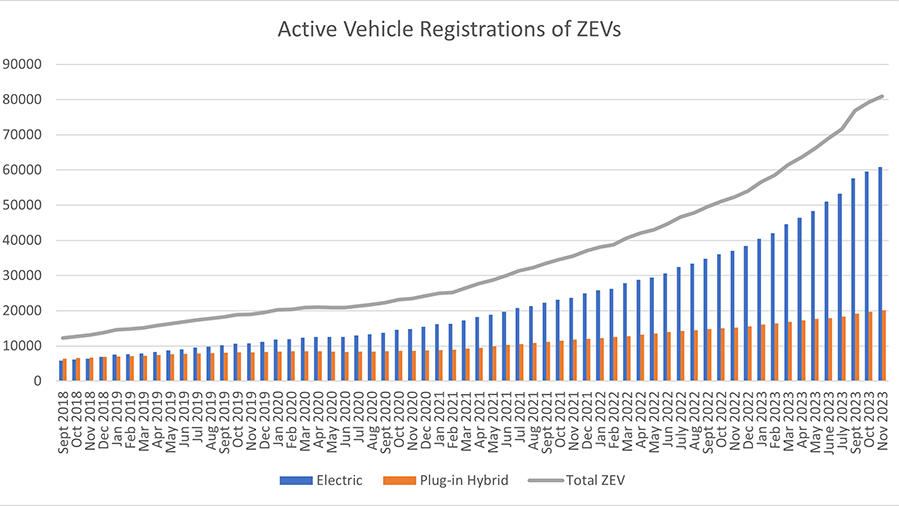
Photo Courtesy NCDOT
According to the N.C. Zero Emission Vehicle Plan, a one-year stakeholder process and public comment period followed Cooper’s executive order. The final North Carolina ZEV Plan, released on Sept. 26, 2019, identifies four action areas to support ZEV adoption: education, convenience, affordability, and policy. In 2022, the NCDOT released a progress update on the plan.
A chart accompanying the ZEV plan showed that active ZEV registrations have risen steadily since Cooper’s executive order. Here’s a look at when various milestones have been reached:
- December 2019: 20,000 registrations
- June 2021: 30,000
- March 2022: 40,000
- September 2022: 50,000
- March 2023: 60,000
- July 2023: 70,000
Aerospace and defense firm BAE Systems describes ZEVs as “any vehicles that use a propulsion technology which does not produce internal combustion engine exhaust or other carbon emissions” when operating. The main focus is on developing non-polluting replacements for a variety of vehicles, construction equipment, water vessels, locomotives, and aircraft that have traditionally been powered by petroleum-based fuels.
According to data from ISeeCars.com, as of 2022, North Carolina ranked No. 17 among all the states in the number of EVs as a percentage of all new car registrations at 1.2%.
Its share was below the national average of 1.6% — partly because California’s leading 4.9% share brought the average well above what most states have.
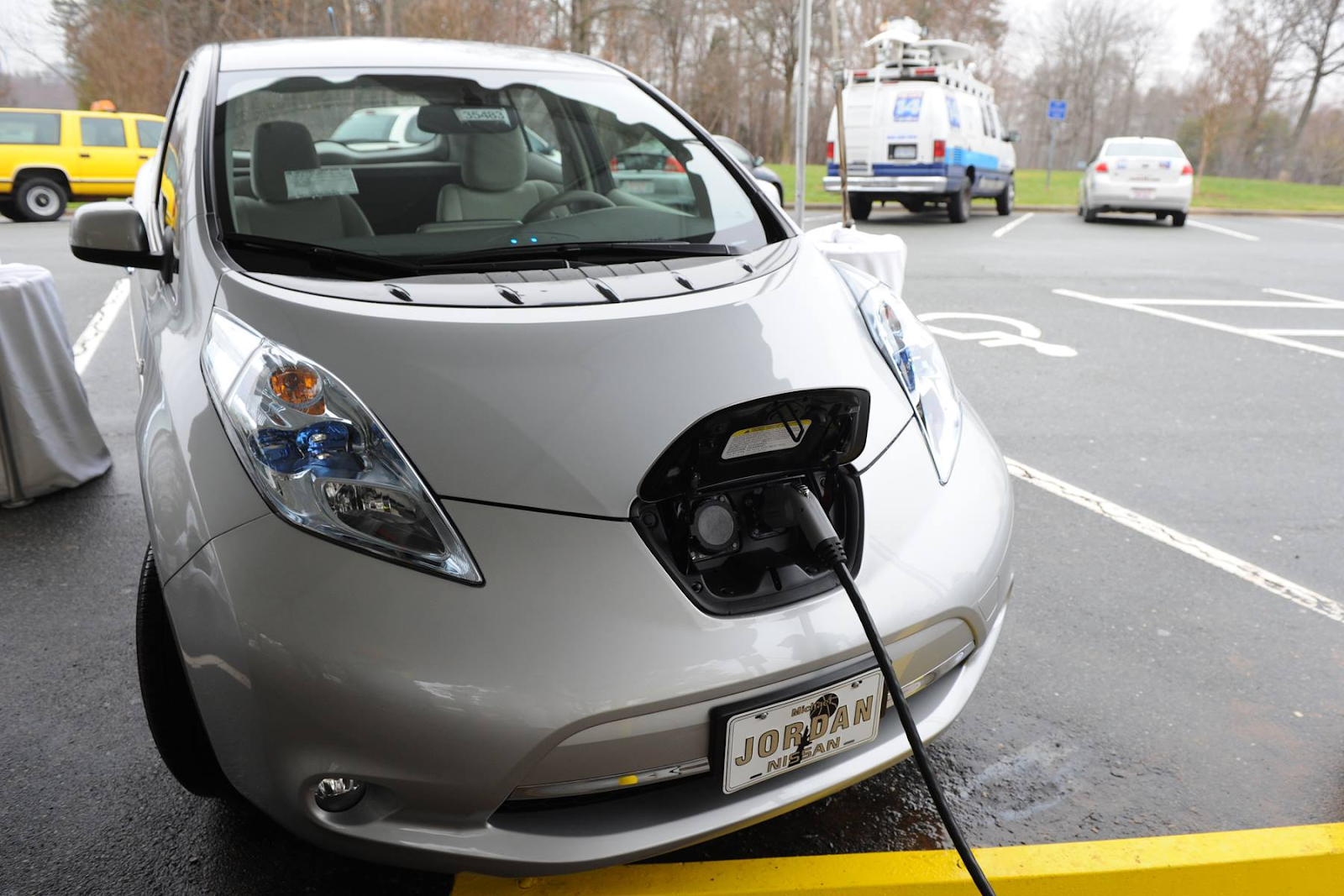
Photo Courtesy North Carolina Department of Transportation
The Electrification Coalition, a nonpartisan nonprofit EV advocacy organization, noted in a 2023 report that North Carolina has “taken important steps toward an electrified transportation future with actions by the state government, local governments, non-governmental organizations, and the private sector, including utilities and EV-related companies.”
In July 2020, North Carolina signed a multi-state agreement to boost zero-emissions engines for medium- and heavy-duty vehicles. Under the agreement, 18 states and the District of Columbia committed to making 100% of medium-duty and heavy-duty sales zero emissions by 2050 and at least 30% by 2030.
One year later, U.S. Senator Thom Tillis shared his excitement for EVs North Carolina and the U.S. “It is exciting to see the progress we’re making in the area of renewable energy, and to see the opportunities that we have in the United States to be an innovator and a leader particularly when talking about medium to heavy duty electric vehicles.”
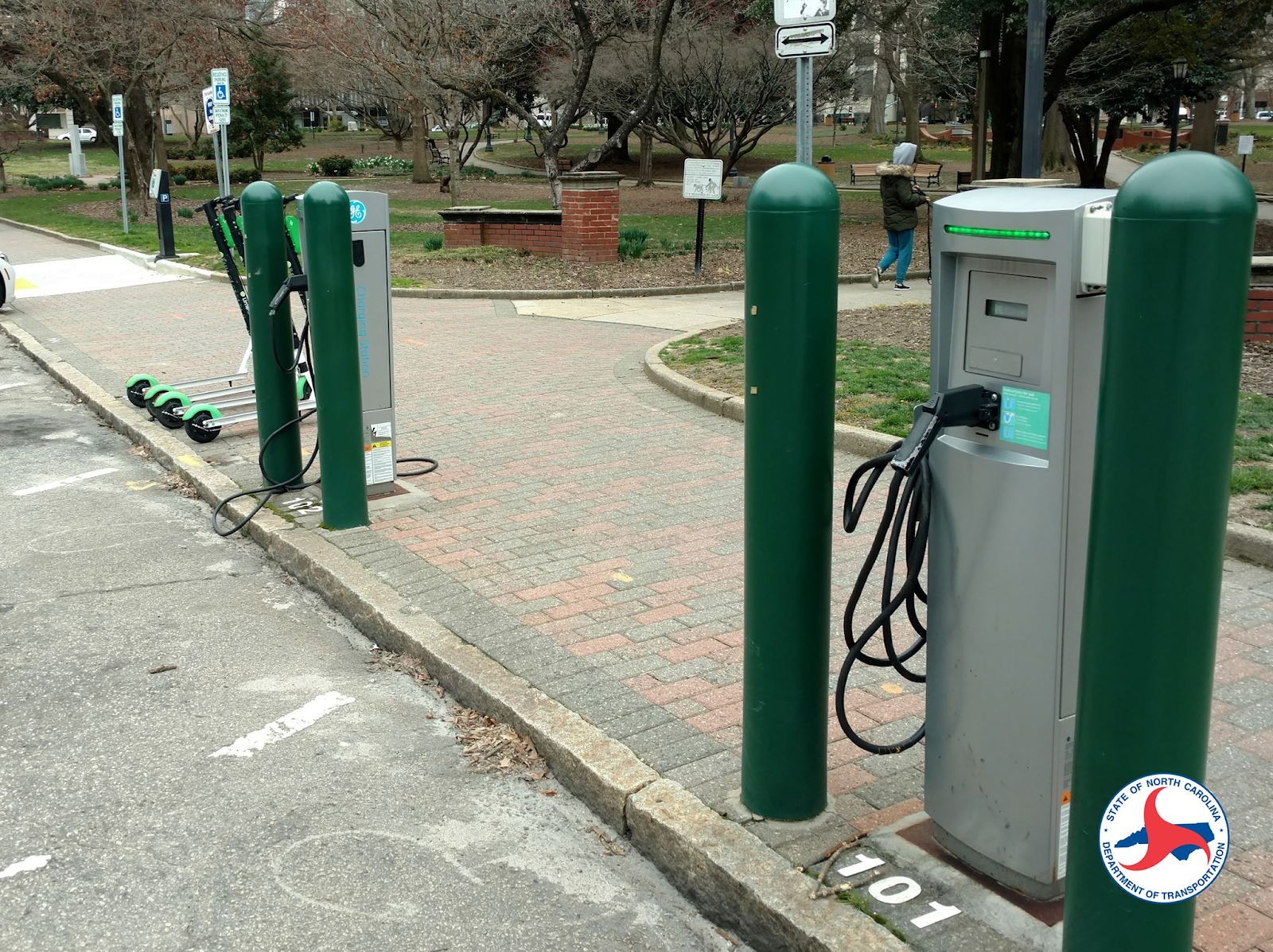
Photo Courtesy North Carolina Department of Transportation
According to the Electrification Coalition, Cooper, two years later, signed another executive order, EO 271, directing the North Carolina Department of Environmental Quality to propose that the Environmental Management Commission adopt an Advanced Clean Trucks (ACT) program to “ensure the mass deployment of ZE trucks and buses in the state.” But that order got struck down in 2023 by the North Carolina legislature.
Even so, the Electrification Coalition called EO 271 “an important signal” from the governor’s office that North Carolina needs more “proactive policymaking” to prepare for EVs — especially medium- and heavy-duty EVs. North Carolina also has numerous incentives that support ZEVs and reduce emissions, including tax exemptions, regulations, high occupancy vehicle lanes, and funds for charging infrastructure.

